Last week's shipwreck off Greece, which killed at least 78 people among hundreds packed onto a fishing boat, has shone a light once again on the deaths of thousands of migrants each year fleeing poverty and conflict in Africa and the Middle East.
Over the weekend, the Italian coastguard rescued 96 migrants from an overcrowded sailboat in distress off the coasts of Roccella Ionica and Spanish charity Open Arms rescued 177 migrants crowded onto a precarious wooden boat from Libya.
While Italian authorities are working to reduce overcrowding at the migrant hotspot on Lampedusa after a recent improvement in weather conditions contributed to a new wave of sea arrivals on the island.
Yesterday morning, there were around 1,300 migrants and refugees on the small Sicilian island, against an official capacity of 400. Since the beginning of the year, 57,346 people have landed illegally in Italy.
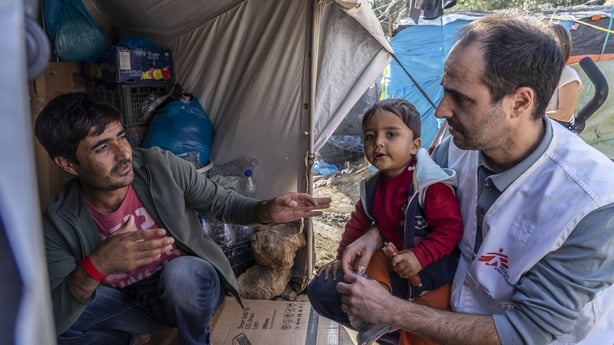
Today, on World Refugee Day, people are reminded that a record 110 million people worldwide have been forcibly displaced from their homes.
The figures were released last week in the UNHCR's flagship report, Global Trends in Forced Displacement.
It said Russia's war in Ukraine, refugees fleeing Afghanistan and the fighting in Sudan have pushed the total number of refugees forced to seek shelter abroad and those displaced within their own countries to an unprecedented level.
The number was up 19.1 million from the end of 2021, the biggest-ever increase since the records began back in 1975.
Since then, the eruption of the conflict in Sudan has triggered further displacement, pushing the global total to an estimated 110 million by May.
"We have 110 million people that have fled because of conflict, persecution, discrimination and violence, often mixed with other motives, in particular, the impact of climate change", UNHCR chief Filippo Grandi told a press conference in Geneva.
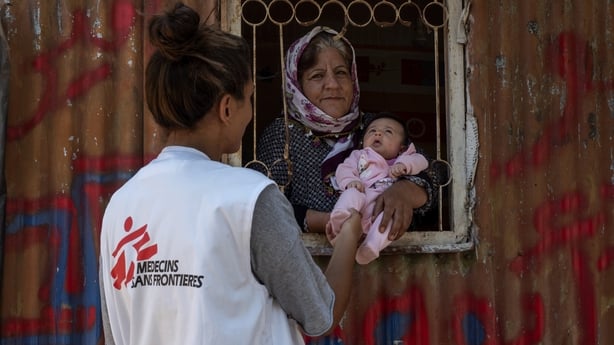
"It's quite an indictment on the state of our world," he said.
Mr Grandi added the swelling displacement this year was being increasingly met with "a more hostile environment, especially when it comes to refugees, almost everywhere".
Greece is one of the main routes into the European Union for refugees and migrants from the Middle East, Asia and Africa.
The United Nations has recorded more than 20,000 deaths and disappearances in the central Mediterranean since 2014, making it the most dangerous migrant crossing in the world.
Médecins Sans Frontières’ Head of Mission for Greece and Balkans Migration Duccio Staderini is critical of policies in place at EU borders.
Instead of seeing an improvement in the situation, he is seeing a rise in the number of people arriving at European borders.
According to Mr Staderini, the policies being implemented are aimed at pushing people back resulting in a lot of institutional violence and suffering.
"The policies are not aimed at providing these people with protection, assistance or shelter," Mr Staderini said.
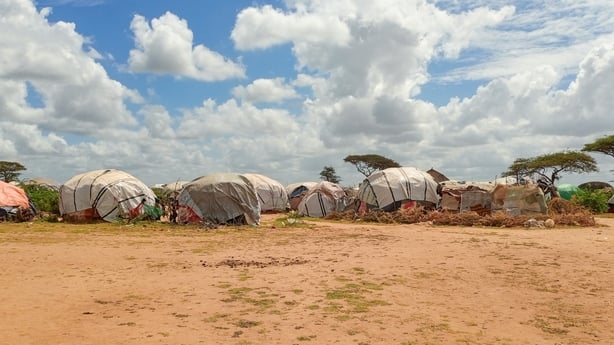
"Deterrent policies aren’t focusing on people’s well-being or reception, rather, the aim is expulsion and deportation."
Mr Staderini said: "Despite all the policies in place, we’ve seen over the years that people are still arriving. The routes might change, we’ve seen an evolution and a shift from central Mediterranean to the western Mediterranean, but they continue to come.
"Even the people that are pushed back, they are never going back," he added.
"They are simply delaying their path and by delaying that path, instead of creating a deterrence. We generate suffering in these people and probably even more trafficking because of course, these bottlenecks that are created at our borders are generating situations of exploitation, of trafficking because these people are vulnerable and made vulnerable by these policies."
While many of the migrants make the dangerous journey across the Mediterranean, it is just one route.
Many people drown on their passage across the sea but others are dying in the Sahara Desert, unaccounted for and unknown, before they make it to the boat.
Over the past year, MSF has seen high levels of generalised mental health suffering among residents in Samos CCAC and demand for mental health support has been consistently high, MSF has conducted 1,347 consultations throughout 2022.
Mr Staderini said: "You have all sorts of violence at every single crossing, or even during their stay in different countries. This uncertainty and violence generates a lot of mental health suffering.
"There is often a big gap in the health system provision in the different countries of transit and of arrivals, so we are trying to cover that gap in some places, but it's not always possible and we don't catch them all."
Meanwhile, MSF is warning of a health disaster in Kenya's Dadaab refugee camps where a cholera outbreak continues to spread.
The three refugee camps which make up the Dadaab complex are home to over 300,000 refugees, most from neighbouring Somalia.
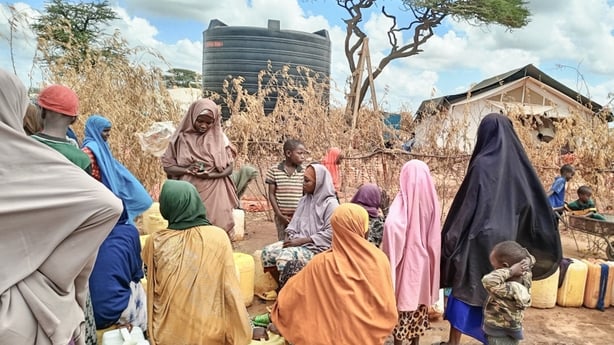
It is Africa's biggest refugee camp with thousands continuing to arrive, fleeing drought and hunger.
The camp's population has grown rapidly in recent months due to an extended drought in Somalia, leading to severe overcrowding and increased pressure on existing services, including supplies of drinking water and latrines.
MSF runs a hospital in Dagahaley, one of the three camps that make up Dadaab.
There are 100,000 refugees based in Dagahaley but is only designed to host 35,000.
Resident Fatah Abdi said his family has not received soap for the last three months, they also have no access to a latrine and as many of their neighbours are forced to look for alternatives.
He said: "There is no hope living in an unclean place."
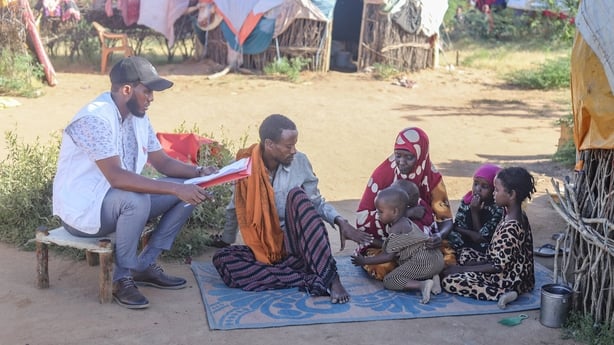
Jeremiah Mbithi, MSF Deputy Medical Team Leader in Dadaab, said it has been really difficult to manage the recent cholera outbreak.
"This is the longest outbreak ever and this is because of the water and sanitation, hygiene challenges we have in the camp," he said.
Overcrowding and water shortages are the main issues with the situation now dire and urgent, according to Mr Mbithi.
Mr Mbithi said: "We're on the ground, we can see the suffering. We can see the long queues. At the water points that we are offering, we can see the numbers that are coming in versus the support we are giving them, let's say, latrines or plastic sheeting support, it's not enough.
"Water, sanitation and hygiene services are really needed. We also need more shelters as the numbers are still coming in. We also need more support on health to better control the cholera outbreak and manage any challenges we have within this refugee sector."
Due to the high numbers of people arriving, water scarcity and overcrowding and the current cholera outbreak, there are growing concerns for further outbreaks such as Hepatitis E, skin diseases and diarrhea.
Some infections within the camps mainly affect children, as most of those arriving have not received any vaccines.
He said: "Currently, because we are receiving new arrivals from Somalia, we find the children coming to the Dagahaley have never been immunised.
"Because of this emergency and overcrowding combined with the vaccination status, the children don't have good immunity, so something like measles can spread quite fast.
"So far we have done quite a number of immunisation campaigns against measles, just to ensure that all the children from six months to 14 years can get a measles vaccine and also other vaccinations, so that at least they can have a healthy life and enjoy life as any other children."
The Kenyan government has announced plans to reopen a fourth camp, Ifo 2, to accommodate new arrivals and alleviate the strain on resources in the existing camps.
MSF is calling for these plans to be enacted as a matter of urgency, and to include increased funding for water and sanitation across all four camps.
Additional reporting AFP







